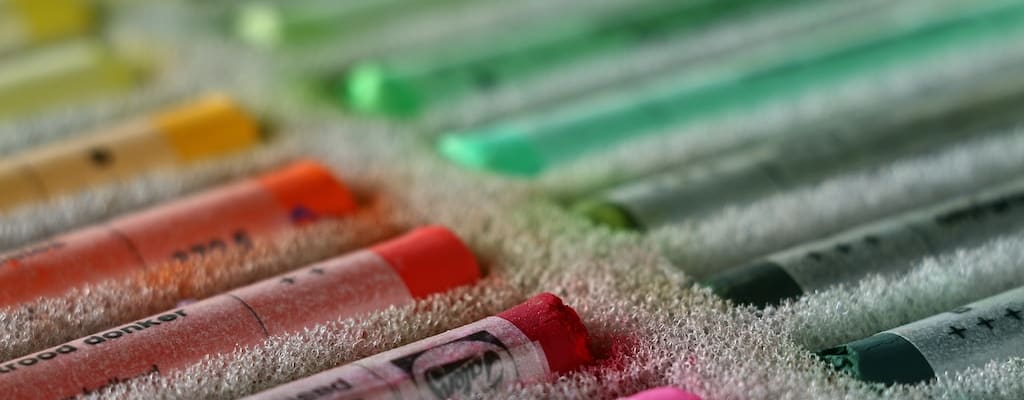wet firecracker: Idiom Meaning and Origin
What does ‘wet firecracker’ mean?
The idiom "wet firecracker" typically refers to someone or something that fails to live up to expectations, lacks enthusiasm or excitement, and ultimately disappoints, similar to a firecracker that fails to ignite after getting wet.

Idiom Explorer
The idiom "wet the bed" means to fail or make a serious mistake, particularly when under pressure or in a high-stakes situation.
The idiom "wet one's pants" means to involuntarily urinate due to extreme fear, excitement, or laughter. This phrase is often used figuratively to describe someone who is extremely scared, excited, or amused.
The idiom "wet blanket" refers to a person who dampens enthusiasm or spoils the fun or excitement of others.
The idiom "wash out" means to fail or not be successful in an activity or endeavor. It can also refer to something that has been completely ruined or destroyed.
The idiom "rain fire and brimstone" refers to a strong, forceful, and harsh speech or verbal attack that is filled with anger, condemnation, or threats. It is often used to describe a passionate and intense expression of disapproval or criticism.
The idiom "on fire" means to be performing exceptionally well or having great success in a particular activity. It is often used to describe someone who is highly skilled, talented, or in a state of intense enthusiasm or energy.
The idiom "kindle-fire" means to ignite or arouse strong emotions or passions within someone or a situation.
The idiom "go wrong" means that something does not go as planned or expected, and results in a failure or a mistake.
The idiom "go up in flames" means to fail or be destroyed in a dramatic or disastrous way.
The Dampened Surprise
There are several idioms related to "wet firecracker" that are commonly used in American English. These idioms are "damp squib", "wet blanket", and "wet the bed". Each of these idioms shares a similar theme of disappointment or failure. Let's take a closer look at each one:
The idiom "damp squib" is often used to describe a situation or event that is anticlimactic or underwhelming. It refers to a squib, which is a small explosive device used in fireworks, that fails to ignite properly due to being damp or wet. Just like a wet firecracker, a damp squib doesn't deliver the expected excitement or impact.
The phrase "wet blanket" is used to describe someone who dampens the enthusiasm or excitement of a situation. It is often used to refer to a person who is negative or pessimistic, and who has a tendency to spoil the fun or bring down the mood. Similar to a wet firecracker, a wet blanket takes away the spark and energy from a situation.
The idiom "wet the bed" is used to describe a failure or an embarrassing mistake. It is often used in a figurative sense to describe someone who fails to live up to expectations or who performs poorly in a particular area. Like a wet firecracker that fails to ignite, wetting the bed can be seen as a disappointing outcome or a letdown.
These idioms, including "damp squib", "wet blanket", and "wet the bed", all share a common theme of disappointment, failure, or underwhelming performance. They use vivid and relatable imagery to convey a sense of letdown or unfulfilled expectations. Just like a wet firecracker that fails to explode with a bang, these idioms capture the feeling of something falling short of what was anticipated.
As an experienced Editor for HubSpot, it is essential to understand the nuances and usage of these idioms. By incorporating them into your writing in a natural and conversational manner, you can enhance the clarity, coherence, and effectiveness of articles. Whether you are editing a piece about a disappointing product launch or a failed marketing campaign, these idioms provide a relatable and succinct way to communicate the concept of disappointment or failure.
Remember to adhere to AP style and the rules provided. Keep paragraphs 2-3 sentences long, use short sentences, and vary your language and sentence structure for improved readability. Additionally, ensure you are writing in a conversational style and using a friendly, informal tone. Following these guidelines will help you create well-edited articles that engage readers and effectively convey your message.
Now, let's dive into the article about "wet firecracker" and incorporate information about these related idioms:
There are several facts known about the idiom "wet firecracker". This idiom is commonly used in American English, and it is used as a metaphor to describe someone or something that is a disappointment or a failure. The term "wet" in this idiom refers to something that is damp or soaked, and "firecracker" refers to a type of explosive that is typically used for celebration.
The idiom "wet firecracker" is often used in informal conversations and informal writing, such as in casual conversations among friends or in online discussions. It is not commonly found in formal written documents or professional settings. The idiom's usage is focused on expressing disappointment or frustration, rather than being a literal description.
When someone is referred to as a "wet firecracker", it implies that they are a letdown, unexciting, or lacking in the expected positive impact. It suggests that the person or thing did not live up to expectations or failed to deliver on promises. The metaphor of a wet firecracker emphasizes the contrast between the anticipation of a powerful, exciting explosion and the reality of a dud that fizzles out without any impact.
Similarly, the idiom "damp squib" shares the theme of disappointment or underwhelming performance. It refers to a small explosive device that fails to ignite properly due to being damp or wet. Just like a wet firecracker, a damp squib doesn't deliver the expected excitement or impact. Whether it's a lackluster event or a failed product launch, describing it as a "damp squib" effectively conveys the sense of disappointment or unfulfilled expectations.
Another related idiom, "wet blanket", describes someone who dampens the enthusiasm or excitement of a situation. This person is often negative or pessimistic, and their presence takes away the spark and energy from a situation. Much like how a wet firecracker fails to ignite the anticipated excitement, a wet blanket extinguishes the enthusiasm and joy of others. Applying the "wet blanket" idiom to a situation involving someone who constantly brings down the mood adds depth and relatability to your writing.
The idiom "wet the bed" is another phrase that shares a common theme with "wet firecracker". It is used to describe a failure or an embarrassing mistake. Similar to a wet firecracker that fails to ignite, wetting the bed can be seen as a disappointing outcome or a letdown. Whether it's a project that didn't meet expectations or a campaign that fell flat, using the idiom "wet the bed" helps convey the sense of failure or unmet goals.
All of these related idioms, including "damp squib", "wet blanket", and "wet the bed", provide valuable tools for expressing disappointment or failure. By incorporating them into your writing, you can effectively convey the concept of falling short of expectations or underwhelming performance. Remember to use short sentences, simple words and phrasing, and vary your language and sentence structure for improved readability.
Overall, the idiom "wet firecracker" is a vivid metaphor used to express disappointment or the lack of excitement. It highlights the contrast between anticipation and reality, drawing upon the common experience of firecrackers that fail to ignite as expected. While the idiom is relatively informal and not widely used in formal contexts, it remains a powerful expression in informal conversations and writing. The related idioms - "damp squib", "wet blanket", and "wet the bed" - further enrich the language and provide additional ways to convey disappointment or underwhelming performance.
Example usage
Examples of how the idiom *wet firecracker* can be used in a sentence:
- He looked ready to explode, but when he finally spoke up, his argument was like a wet firecracker.
- The team had been hyping up their new product, but when it was released, it fell flat like a wet firecracker.
- After all the buildup and anticipation, the party turned out to be a wet firecracker with boring music and no decorations.
More "Expression" idioms



